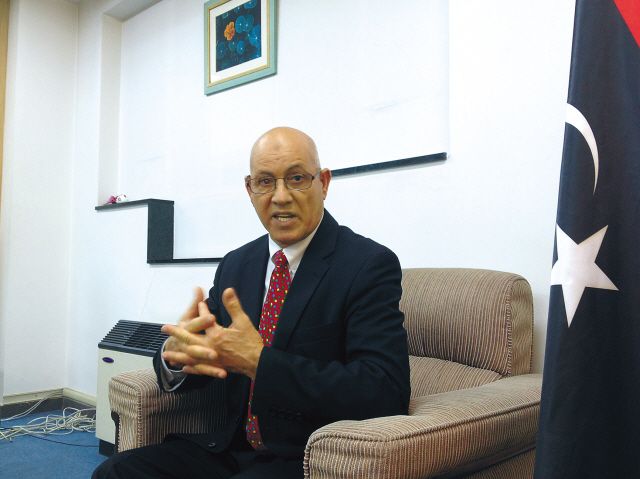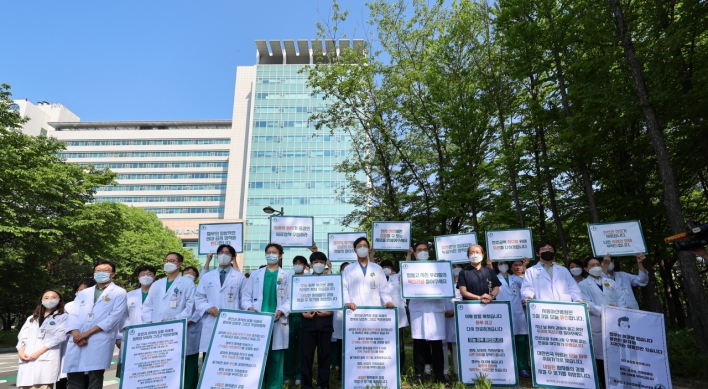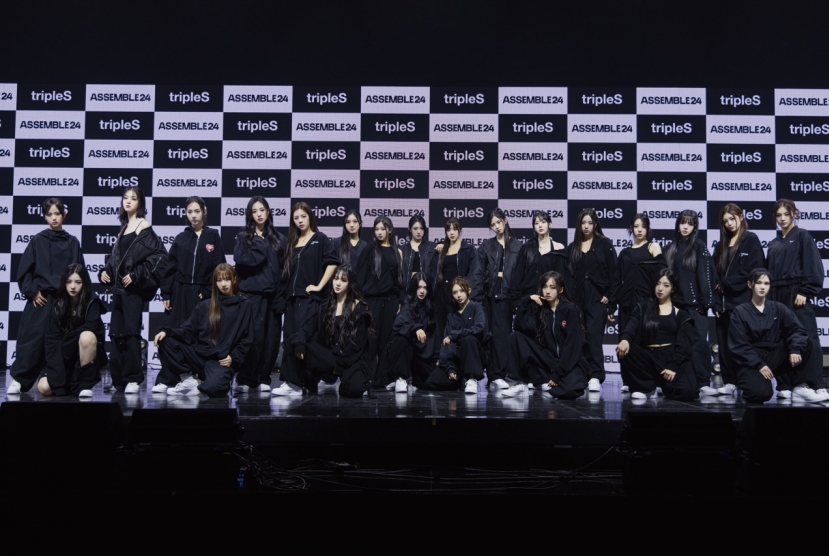Libya’s democratic revolution in 2011 toppled strongman Moammar Gaddafi’s 30-year rule, drafted an interim constitution and, in July last year, Libyans democratically elected a new General National Congress for the first time.
But now the North African country is reeling from several threats and attacks on Western targets, including the attack on a U.S. diplomatic mission in Benghazi that killed four Americans including U.S. Ambassador Christopher Stevens.
Islamic militants tried to blow up the British Council in Tripoli on April 23, minutes after other members of a suspected al-Qaida cell managed to detonate a powerful bomb outside the French Embassy.
The embassy bombing left two gendarmes injured, one seriously, and wounded several locals. The attack on the British Council failed thanks to the incompetence of the militants.
Rising violence could undo efforts to attract foreign investment and trade badly needed to rebuild the country after the devastation of the February Revolution and a year of civil war.
The Libyan diplomatic mission here strained itself to assure Korean officials that the security situation was under control and safe enough to continue with a 20,000-unit housing project near Benghazi, building an electrical power plant and other business in the country.
“The Korean-Libyan relationship is experiencing a high point currently with many Korean companies returning to Libya for business after the end of the revolution,” said Libyan Charge d’Affaires to Korea Otman S.M. Daouki in an interview with The Korea Herald at his office in the Yongsan district of Seoul on Monday.
But now the North African country is reeling from several threats and attacks on Western targets, including the attack on a U.S. diplomatic mission in Benghazi that killed four Americans including U.S. Ambassador Christopher Stevens.
Islamic militants tried to blow up the British Council in Tripoli on April 23, minutes after other members of a suspected al-Qaida cell managed to detonate a powerful bomb outside the French Embassy.
The embassy bombing left two gendarmes injured, one seriously, and wounded several locals. The attack on the British Council failed thanks to the incompetence of the militants.
Rising violence could undo efforts to attract foreign investment and trade badly needed to rebuild the country after the devastation of the February Revolution and a year of civil war.
The Libyan diplomatic mission here strained itself to assure Korean officials that the security situation was under control and safe enough to continue with a 20,000-unit housing project near Benghazi, building an electrical power plant and other business in the country.
“The Korean-Libyan relationship is experiencing a high point currently with many Korean companies returning to Libya for business after the end of the revolution,” said Libyan Charge d’Affaires to Korea Otman S.M. Daouki in an interview with The Korea Herald at his office in the Yongsan district of Seoul on Monday.

“The same companies that were working before the revolution, including Hyundai, SK, Samsung and Daewoo, have returned to Libya to build hospitals, highways, houses and an electrical power plant,” Daouki said during the interview through an Arabic interpreter.
Daewoo built Tripoli’s Marriott Hotel and was also involved in building a second luxury hotel in Libya’s capital city, as well as a power plant in Benghazi. Two power plants were also being built in the south of the country by Hyundai, and both Hyundai and Shinhan Group are building housing units in Zawia and Tripoli.
According to the Korea Trade-Investment Promotion Agency, Korean companies were involved in $36 billion worth of projects in the country and Korean companies could nab another $40 billion worth of projects for rebuilding Libya.
Rising violence in Libya threatens to undo all that, however, and hold back diplomatic ties that are finally on the mend. Korean Christian missionary activities could complicate an already precarious security situation.
The Libyan Embassy here was downgraded to an office for economic cooperation in 2007. Relations further deteriorated in June 2010 over the deportation of a Korean embassy official amid accusations of spying. Libya closed its diplomatic mission in Seoul from June to October of that year.
Relations got back on track in 2011 following the Arab Spring and Libya’s February Revolution.
Daouki said the Korean-Libyan relationship is currently experiencing a high point, with many Korean companies returning to Libya for business after the end of the revolution.
Some 50 Korean corporations are currently in Libya doing business. Trade has increased to about $10 billion in 2012, he said.
“The government has a security program that includes security guards and armored cars in the cooperation of various ministries including the Ministry of Foreign Affairs and the Interior Ministry to protect foreign missions and corporate executives doing business in Libya,” he said.
Daouki described a Libyan program that pays former rebel fighters as much as $1,000 for a Kalashnikov rifle, and more for larger weapons.
“Libya offers $1,000-$3,000 depending on the weapons that are turned in,” he said.
Fueling recent violence are tens of thousands of loose arms, including thousands of shoulder-fired SA-7 missiles that remain unaccounted for.
“Weapons proliferation is a real problem and the Libyan government is very concerned. The government is implementing a program to buy back small arms and get the weapons off the streets in Libya,” Daouki said. “Militants even return weapons to the government to be integrated into the Libyan Army, too.”
Daouki said there have been an increased number of cases of Korean Christian missionaries proselytizing in Libya since 2010, impacting bilateral ties.
In June 2010, relations ground to a halt when Libya expelled a Korean diplomat amid allegations of spying. Libya started to scrutinize Korean nationals there and, in particular, those suspected of missionary activities.
Two missionaries were arrested and then deported for proselytizing in July 2010.
In October 2012, an international group of Christian missionaries including some Koreans were arrested and deported for their missionary activities, including distributing some 40,000 Bibles.
In February another missionary was detained for two months before being deported back to Korea in April.
“It is illegal to proselytize Christianity. It is also illegal for a Muslim to convert to Christianity with unspecified consequences,” Daouki said. “Islam is the national religion if a Muslim converts to Christianity this will make trouble for him. His punishment varies depending on the court and the judge sentencing him.”
The Korean missionary, who was identified in news reports by his surname Lee, was arrested on Feb. 10, along with three other foreign nationals, on suspicion of distributing books about Christianity, which is illegal in the Islamic country.
“We are trying to increase relations between Libya and Korea. Nowadays Libya wants to increase cooperation with Korea and enhance the relationship between the two countries,” he said.
“At this time, there is no need to add cases that can harm the relationship. The government should control them because their activities could harm relations.”
By Philip Iglauer (ephilip2011@heraldcorp.com)
-
Articles by Korea Herald










![[K-pop’s dilemma] Time, profit pressures work against originality](http://res.heraldm.com/phpwas/restmb_idxmake.php?idx=644&simg=/content/image/2024/05/08/20240508050705_0.jpg&u=20240508171126)








